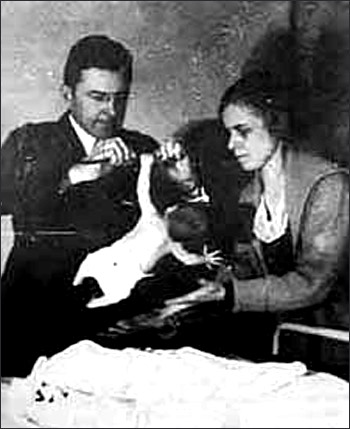Introduction:
John Broadus Watson, commonly known as J.B Watson, was an influential American psychologist who played a pivotal role in shaping the field of psychology in the early 20th century. Born on January 9, 1878, in Travelers Rest, South Carolina, Watson is best remembered for his pioneering work in behaviorism, a school of thought that focused on observable and measurable behaviors as the primary subject matter of psychology.
Early Life and Education:
Watson’s academic journey began at Furman University, where he initially studied literature and philosophy. However, his interests soon shifted towards psychology, and he transferred to the University of Chicago. There, he studied under renowned psychologists such as John Dewey and James Rowland Angell. Watson earned hos Ph.D. in psychology in 1903, and his early research interests were primarily in animal bahavior.

Behaviorism and the “Little Albert” Experiment:
In 1913, Watson published a groundbreaking article titled “Psychology as the Behaviorist Views It,” which is considered the founding document of behaviorism. Watson asserted that psychology should focus solely on observable behavior and reject the study of mental processes, which he deemed subjective and unscientific.
One of Watson’s most infamous experiments, the “Little Albert” study, was conducted in 1920 in collaboration with Rosalie Rayner. The experiment involved conditioning a baby, known as Little Albert, to fear a white rat by pairing the presentation of the rat with loud, frightening noises. This experiment demonstrated the principles of classical conditioning and had a significant impact on the understanding of learned behaviors and emotional responses.
Career and Legacy:
Watson’s career took him to various academic institutions, including Johns Hopkins University, where he became the chair of the psychology department. However, his personal life became inter wined with scandal, and he eventually left academia. Despite the controversies, Watson continued to contribute to the field through his writings and popularization of behaviorism.
Watson’s legacy extends beyond his academic contributions. He was instrumental in popularizing psychology and making it accessible to the general public. His 1913 manifesto on behaviorism inspired a generation of psychologists to focus on objective, observable phenomena, laying the foundation for the behavioral revolution in psychology.
Criticism and Controversy:
While Watson’s work brought attention and legitimacy to psychology as a scientific discipline, he also faced criticism. Some psychologists argued that his exclusive focus on observable behavior neglected the importance of internal mental processes. Others criticized the ethics of his experiments, particularly the “Little Albert” study, for its potential long-term psychological impact on the infant subject.
Conclusion:
John B. Watson’s impact on psychology is undeniable. As the founder of behaviorism, he redirected the course of the field, emphasizing the importance of observable behavior in understanding human and animal psychology. Despite controversy and criticism, Watson’s contributions laid the groundwork for future developments in behaviorism and shaped the trajectory of psychology as a whole. His legacy endures in the ongoing debates about the balance between the study of behavior and the exploration of internal mental processes in understanding the complexities of the human mind.

